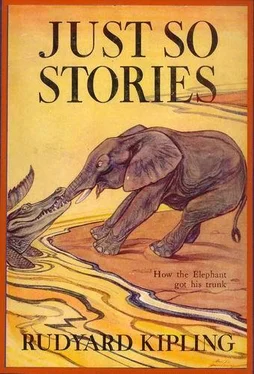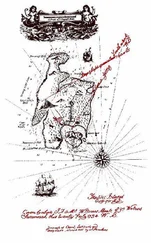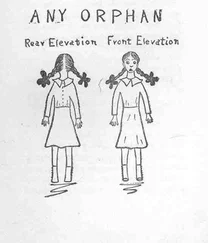Илья Франк - Английский язык с Р. Киплингом. Истории просто так
Здесь есть возможность читать онлайн «Илья Франк - Английский язык с Р. Киплингом. Истории просто так» — ознакомительный отрывок электронной книги совершенно бесплатно, а после прочтения отрывка купить полную версию. В некоторых случаях можно слушать аудио, скачать через торрент в формате fb2 и присутствует краткое содержание. Год выпуска: 2007, Жанр: Языкознание, на русском языке. Описание произведения, (предисловие) а так же отзывы посетителей доступны на портале библиотеки ЛибКат.
- Название:Английский язык с Р. Киплингом. Истории просто так
- Автор:
- Жанр:
- Год:2007
- ISBN:нет данных
- Рейтинг книги:4 / 5. Голосов: 2
-
Избранное:Добавить в избранное
- Отзывы:
-
Ваша оценка:
- 80
- 1
- 2
- 3
- 4
- 5
Английский язык с Р. Киплингом. Истории просто так: краткое содержание, описание и аннотация
Предлагаем к чтению аннотацию, описание, краткое содержание или предисловие (зависит от того, что написал сам автор книги «Английский язык с Р. Киплингом. Истории просто так»). Если вы не нашли необходимую информацию о книге — напишите в комментариях, мы постараемся отыскать её.
Английский язык с Р. Киплингом. Истории просто так — читать онлайн ознакомительный отрывок
Ниже представлен текст книги, разбитый по страницам. Система сохранения места последней прочитанной страницы, позволяет с удобством читать онлайн бесплатно книгу «Английский язык с Р. Киплингом. Истории просто так», без необходимости каждый раз заново искать на чём Вы остановились. Поставьте закладку, и сможете в любой момент перейти на страницу, на которой закончили чтение.
Интервал:
Закладка:
So he changed his skin then and there (и он изменил свою кожу тут и там), and the Leopard was more excited than ever (а Леопард еще больше разволновался); he had never seen a man change his skin before (он никогда прежде не видел, чтобы человек менял свою кожу; before — прежде ).
‘But what about me (а как насчет меня)?’ he said (спросил он), when the Ethiopian had worked his last little finger into his fine new black skin (когда Эфиоп всунул свой последний мизинчик в свою прекрасную новую черную кожу).
‘You take Baviaan’s advice too (ты тоже последуй совету Павиана). He told you to go into spots (он велел тебе пойти поиграть в пятнашки [49] А точнее в пятнышки. Еще не забыли, в чем тут прикол?
).’
excited [Ik'saItId], finger ['fINgq], before [bI'fL]
So he changed his skin then and there, and the Leopard was more excited than ever; he had never seen a man change his skin before.
‘But what about me?’ he said, when the Ethiopian had worked his last little finger into his fine new black skin.
‘You take Baviaan’s advice too. He told you to go into spots.’
‘So I did (я так и сделал),’ said the Leopard (сказал Леопард). ‘I went into other spots as fast as I could (я устремился в другие места со всех ног). I went into this spot with you (я отправился в это место с тобой), and a lot of good it has done me (и мне это принесло кучу пользы [50] Здесь имеется в виду противоположный смысл, так сказать, «в кавычках».
).’
‘Oh,’ said the Ethiopian (ах, — сказал Эфиоп), ‘Baviaan didn’t mean spots in South Africa (Павиан не имел в виду места [51] Можно и так: «… белые пятна в Южной Африке».
в Южной Африке). He meant spots on your skin (он имел в виду пятна [52] Еще раз поясняю игру слов: spot — 1) место; 2) пятно.
на твоей шкуре; to mean — подразумевать, иметь в виду ).’
‘What’s the use of that (какой в этом прок)?’ said the Leopard (спросил Леопард).
‘Think of Giraffe (вспомни Жирафа),’ said the Ethiopian (сказал Эфиоп). ‘Or if you prefer stripes (или же если ты предпочитаешь полоски), think of Zebra (вспомни Зебру). They find their spots and stripes give them perfect satisfaction (они считают, что их пятна и полоски дают им полное удовлетворение = полностью удовлетворяют их ).’
South [sauT], use [jHs], prefer [prI'fW]
‘So I did,’ said the Leopard. ‘I went into other spots as fast as I could. I went into this spot with you, and a lot of good it has done me.’
‘Oh,’ said the Ethiopian, ‘Baviaan didn’t mean spots in South Africa. He meant spots on your skin.’
‘What’s the use of that?’ said the Leopard.
‘Think of Giraffe,’ said the Ethiopian. ‘Or if you prefer stripes, think of Zebra. They find their spots and stripes give them perfect satisfaction.’
‘Umm,’ said the Leopard (хм, — сказал Леопард). ‘I wouldn’t look like Zebra — not for ever so (я не хотел бы быть похожим на Зебру — не навсегда во всяком случае).’
‘Well, make up your mind (ну, решайся),’ said the Ethiopian (сказал Эфиоп), ‘because I’d hate to go hunting without you (потому что я бы очень не хотел охотиться без тебя; to hate — ненавидеть; не любить ), but I must if you insist on looking like a sun-flower against a tarred fence (но мне придется, если ты будешь настаивать на том, чтобы выглядеть как подсолнух на фоне просмоленного забора).’
‘I’ll take spots, then (значит, я выбираю пятна; then — тогда ),’ said the Leopard (сказал Леопард); ‘but don’t make ‘em too vulgar-big (но не делай их слишком вульгарно-большими). I wouldn’t look like Giraffe — not for ever so (я не хотел бы быть похожим на Жирафа — не навсегда во всяком случае).’
‘I’ll make ‘em with the tips of my fingers (я сделаю их кончиками моих пальцев),’ said the Ethiopian (сказал Эфиоп). ‘There’s plenty of black left on my skin still (на моей коже осталось еще много черной краски). Stand over (становись /сюда, туда — в определенное место/)!’
mind [maInd], hunt [hAnt], flower ['flauq]
‘Umm,’ said the Leopard. ‘I wouldn’t look like Zebra — not for ever so.’
‘Well, make up your mind,’ said the Ethiopian, ‘because I’d hate to go hunting without you, but I must if you insist on looking like a sun-flower against a tarred fence.’
‘I’ll take spots, then,’ said the Leopard; ‘but don’t make ‘em too vulgar-big. I wouldn’t look like Giraffe — not for ever so.’
‘I’ll make ‘em with the tips of my fingers,’ said the Ethiopian. ‘There’s plenty of black left on my skin still. Stand over!’
Then the Ethiopian put his five fingers close together (затем Эфиоп сложил свои пять пальцев вплотную вместе = щепотью ) (there was plenty of black left on his skin still (на его коже оставалось много черной краски; to leave — оставлять ) and pressed them all over the Leopard (и поприжимал = потыкал ею Леопарда со всех сторон), and wherever the five fingers touched left five little black marks, all close together (и где бы пять пальцев ни коснулись, они оставили пять маленьких черных отметин, все щепотью: «все плотно друг с другом»). You can see them on any Leopard’s skin you like, Best Beloved (Самые Любимейшие, вы можете увидеть их на шкуре какого угодно Леопарда). Sometimes the fingers slipped and the marks got a little blurred (иногда пальцы соскальзывали, и отметины стали = получились немного смазанными); but if you look closely at any Leopard now (но, если вы внимательно посмотрите на любого Леопарда = присмотритесь тщательно к любому Леопарду сейчас) you will see that there are always five spots (вы увидите, что /там/ всегда есть пять пятнышек) — off five fat black finger-tips (от пяти жирных черных отпечатков пальцев).
Читать дальшеИнтервал:
Закладка:
Похожие книги на «Английский язык с Р. Киплингом. Истории просто так»
Представляем Вашему вниманию похожие книги на «Английский язык с Р. Киплингом. Истории просто так» списком для выбора. Мы отобрали схожую по названию и смыслу литературу в надежде предоставить читателям больше вариантов отыскать новые, интересные, ещё непрочитанные произведения.
Обсуждение, отзывы о книге «Английский язык с Р. Киплингом. Истории просто так» и просто собственные мнения читателей. Оставьте ваши комментарии, напишите, что Вы думаете о произведении, его смысле или главных героях. Укажите что конкретно понравилось, а что нет, и почему Вы так считаете.



